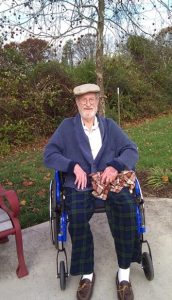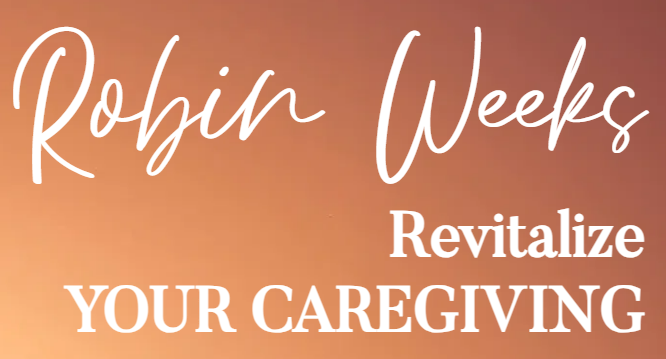Full Disclosure: this blog is about dying, death and grief.
Our society has an unspoken taboo that we don’t talk about dying or death. This unspoken rule puts a lot of undue stress and emotions on us when we are faced with this. It also means that if we want to talk about it, no one really wants to listen or knows what to say or how to support us. As a result, many of us struggle through our grief or the dying of someone we love without expressing what we are feeling. This causes tremendous strain on our hearts, minds and bodies.
We hold on to life with tenacity. We applaud those who “survive” cancer or bravely live with incapacitating illnesses. All because they are living! And, when they die, we are devastated, bereft and surprised by the loss of their physical presence in our lives. We fail to accept that death is a natural part of life. And, so, we have no rituals of acceptance that help and support us through the process.
Many cultures have rituals around death that allow for the processing of grief and loss. Our only ritual is a memorial service and a funeral. These two things are all we typically do to honor both the deceased and the family and friends. Then we move on!
I want to start by telling you three stories of dying and death in my family. To some degree, they were all expected due to illness and old age. But, to a larger degree they were very hard to cope with in my life. Each was quite different in how it happened and so each was a different experience from which I learned how to grieve and how to accept.
The first story is of my dad who died of a terminal illness. He was an active vibrant man at 87 who still read and studied his love of physics which was his profession for all his adult life. His illness came on suddenly and he was given six months to live. He became bed ridden and was admitted to a skilled nursing unit in the retirement community where he and my mother lived. This was his worst nightmare! And I remember one day visiting him after being told he would probably not walk again. He looked out his door to an elder gentleman walking with a rolling walker and said to me, “I thought I would be leaving here like that.” That was a devastating blow to us both!
His mind remained very strong as he lay there for those months. I lived a state away and visited frequently. I remember feeling like I needed to try so hard to keep him living. I would roll him down to their house in the neighborhood in his wheelchair. I would take him out for walks around the neighborhood in his wheelchair so he could have some fresh air. But he was becoming more and more resigned to his fate and rarely smiled anymore. He was always an avid news hound and became uninterested in watching the news. He couldn’t really focus long to read.

The desire to keep someone living is deep within us. We try everything so they will stay with us. I was not ready to give up, even though we had brought in hospice and the illness was terminal. That day we met with the hospice team included my father and it was so hard to hear what he had to say about wanting to die. He did not want to go on living this way.
He died at the end of those six months. He just slowly left us, body, mind, and spirit. I said goodbye to him that morning and kissed him on the cheek. He was not awake and from what I now understand about death, he was in a coma and at his final moment. I didn’t know that at the time and as I said earlier, we hold on tight. Even the nurses were telling me his vitals were still strong!
So, as I drove home, my mother called me to tell me he had died. I was in shock. That whole day was a blur. I will talk about my grief response as I tell you about the other death that occurred that week.
My older brother was an alcoholic. Long tragic story of a beautiful, talented person who never got the help he needed. He had told me he was diagnosed with cirrhosis of the liver and given 8 years to live if he did not quit drinking. He did not! Even though he lied to all of us in the family about it.
He was trying so hard to help my mother while my father was dying and all that time, he was getting sicker and sicker and hiding it from us. This story I still cannot go into detail about because I am still grieving over his death. He died alone in his apartment. I had not heard from him for over 2 weeks. My younger brothers and I called the police to go check on him and they found him dead. This was 5 days before my father died.
The third story is of the death of my mother. After my brother and father died, I moved her to be near me at an assisted living residence. She was in good physical and mental shape, and we had a lot of good times together. I thought she would do well having a small apartment with other elders around her and spending weekends with me.

That was a bit of a delusion. I failed to accept that someone at the age of 89 would begin to have repeated hospital and ER visits and their physical abilities would slowly decline. Remember I said we hold on tight to life! And this was what I was holding on to.
One weekend at my house she turned to me, holding onto her walker, and said, “I think this is the last time I can come stay here.” That broke my heart because of what it meant; no more porch time, I would be spending more weekends at her assisted living, and she was giving up. I don’t say that lightly. She used to always say to me “I wonder how much longer I’m going to live.” Or “I wonder when I will die. I’m ready to move over and let someone else have my place here.” Those statements at first, used to horrify me and I would tell her she had a long life ahead. But I realized she was at the end of her life, and I got comfortable with her saying those things.
I suppose I got comfortable with death because of her. She had a hemorrhagic stroke that took away her voice and all her physical abilities but not her mind! I admitted her to hospice care because she had no more will to live. In some ways I still tried to hold on by going at lunch every day to help her eat and rolling her out into the gardens so she could enjoy the sun and birds. But she no longer wanted to try. I knew she was dying and I did not want to accept it. I was also torn because I knew she was ready. She would often say to me that she was “ready to go home”.
The call from hospice came one Friday that I needed to go to her. She was entering the final stage of death, what is called active dying. I sat with her for four days. She was mostly somewhere I could not reach. I talked to her, loved on her, and let her go. She died peacefully, not in pain, not sick and not in a hospital but in her room where she had lived the last 3 years of her life. She was 94! I sat with her afterwards, stroked her cheek and told her to go find her husband, son and all the others she had lost in her life.
What I have learned about dying, death and grief is that each time is unique, different and carries emotions in ways we don’t expect. I grieved my mother for a very long 2 years. The first year I secluded, I was lost after caring for her for over 6 years. I missed her physical presence so much. I was ready to let her go, to grieve her and to walk through that grief so I could hold her memory in my heart and mind.
My mother never got through her grief of her husband of 65 years and her first-born son. She never talked about it. She would only say she missed them and was thinking about them. I believe she suffered so much because, while she accepted their deaths, she was unable to process her grief. She was a strong woman and lived 6 years after their deaths. Where she put all that grief I do not know. She had good days mostly, it seemed. But there were dark, sad days that I could not reach.
It took me over 10 years to finally grieve the death of my older brother. I was so angry at him for what he did and for the tragedy of his life. He was such an amazingly talented, kind, and generous human being. I think I am still processing my grief over him.
Grief hits us all at some point. We lose a friend, a family member, a parent, a pet. By denying it’s impact we only hurt ourselves. When friends don’t know what to say or say the stupidest things, just tell them you are hurting and walk away. People are so afraid of death and dying that they will gladly walk away from you while you are in pain and suffering.
Greif cannot be buried or put away on a shelf because it is what is left of that person that is causing us the grieving. I believe we need to walk along with grief, let its tears flow down our cheeks, let its pain swell up and hit us when we least expect it, let it take its own time with us. I still get tears when I look at pictures of my parents and my older brother. You must allow grief its place in your life. It gets easier, you will laugh again and go out with friends.
Finding ways to remember that person, honor them or sit with photos and recall stories helps to process the life they lived. On the anniversaries of their deaths or their birthdays, finding something to bring to your memory, even if painful, is to allow grief to re-enter and embrace you. Grief can be hard, soft, unexpected, and it is a companion as you walk with it. One day it will come with you gently and your tears will be soft and not hurt so much. That feeling is the love you hold for the individual, allow it to embrace you.

